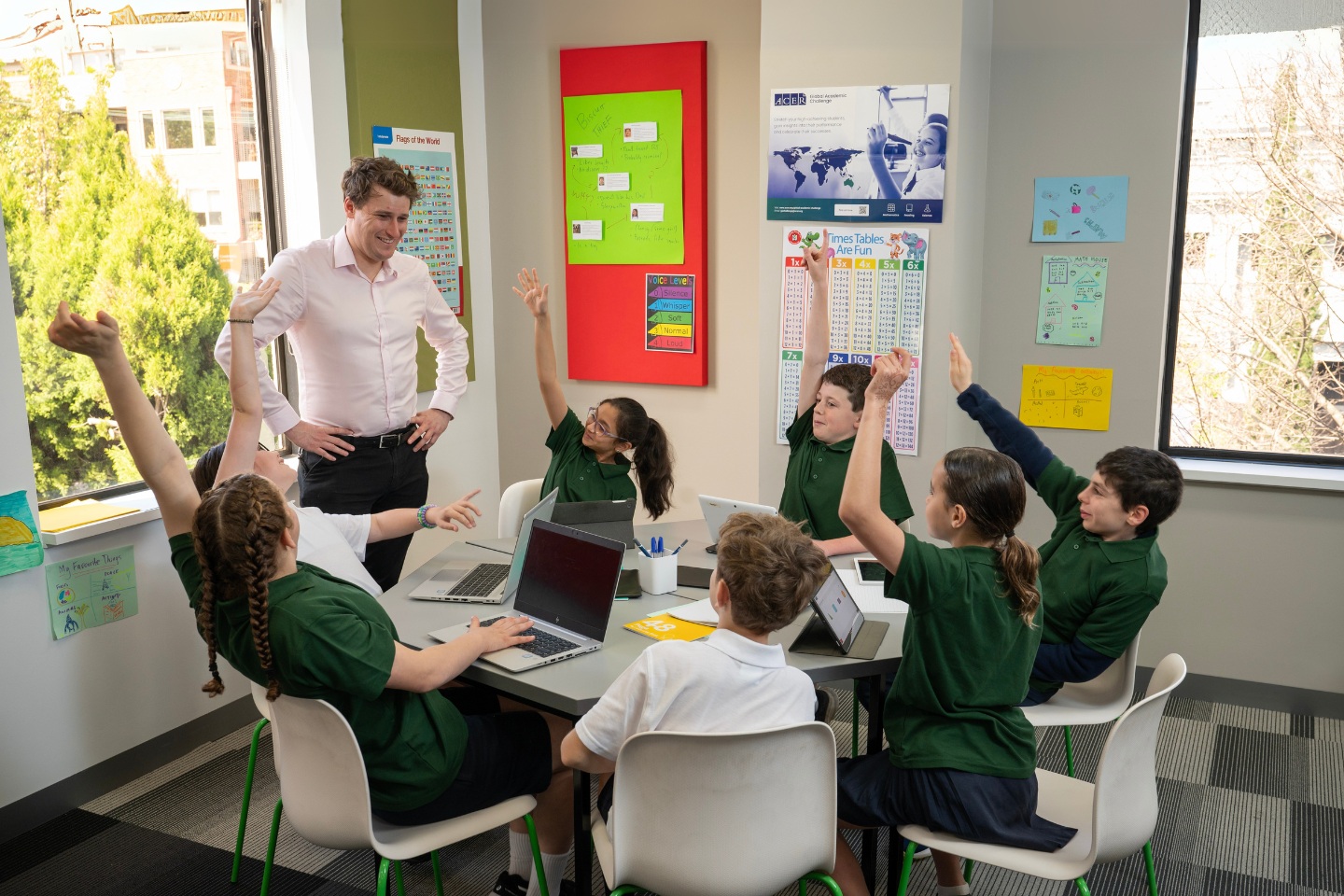
Education extends beyond the classroom
21 Jan 2025 5 minute readAhead of the United Nations International Day of Education, ACER Chief Executive Lisa Rodgers reflects on Australia’s achievements and challenges for schooling.
There is nothing more important in life than making sure that our children are equipped with an education. Teachers feel this deeply, working relentlessly in the classroom, the staffroom and at home to help their students to progress.
Australian students’ results in the latest international assessment of maths and science achievement are a testament to the hard work of our teachers in the face of significant challenges.
The results released last month show our year 4 students have achieved their highest ever average maths and science score in the Trends in International Mathematics and Science Study (TIMSS), which has been conducted every 4 years since 1995. Those students’ results also improved relative to other countries.
In science, our year 4s were outperformed by only 4 other countries in the 2023 TIMSS assessment, compared with 8 in 2019, and in maths they were outperformed by 14 countries, compared with 22 last time.
This is particularly impressive when you consider these students started school in 2019 before facing disruptions from COVID-19. It speaks to the immense effort from teachers to provide a continuity of learning during lockdowns, while also managing their own families’ learning and health.
Educators also face the challenges of teacher shortages, out-of-field teaching and more complex classrooms because of rising rates of social and emotional issues, and more students with special needs.
Despite this, the TIMSS results show our teachers have worked hard to recover any learning losses these young students experienced because of the pandemic and further extend their progress.
For older students, the challenge has been greater. Only 3 countries improved their TIMSS results in each of year 8 maths and year 8 science since 2019, suggesting that the pandemic was felt harder by students in the middle years of their schooling.
In this context, we can be proud that Australia’s year 8 results have held steady since 2019, and that just 7 countries outperformed Australia in science and 8 in maths.
We should be proud, but not complacent. We need to lift the students who are below expectations, which sadly grows over the years of schooling.
In maths, for example, 28% of our year 4 students and 36% of year 8 students were low or very low performers. The OECD Programme for International Student Assessment (PISA), which tests 15-year-olds (who are mostly in year 10), shows even larger proportions of Australian students are below our desired standard.
Studies like TIMSS and PISA also gather contextual information that points to the practices associated with success. The evidence says a growth mindset, love of learning and self-confidence are powerful predictors of learning.
Teacher support also predicts performance. We know from PISA that the more frequently students experience teacher support, the more they show proactive learning behaviour.
There are countless stories about the extraordinary passion and dedication of the remarkable educators who care for our children. But teachers can’t do it all on their own.
Parental involvement in children’s learning has a significant relationship with achievement. When parents interact with their children more frequently, when children practice at mathematics and number use at home, this helps.
Students must attend school. Roughly a quarter of Australian students miss 20 or more days of school each year. The reasons are varied and complex, but the evidence is clear: absenteeism affects achievement.
Education is a human right and the key to creating a better future for both individuals and our society. This means there are half-a-million teachers across Australia who deserve recognition for continuing to help shape not just their students’ lives but of all our lives.